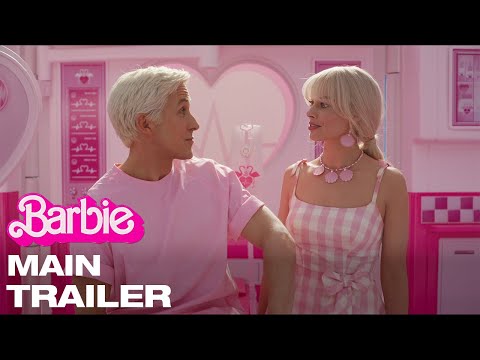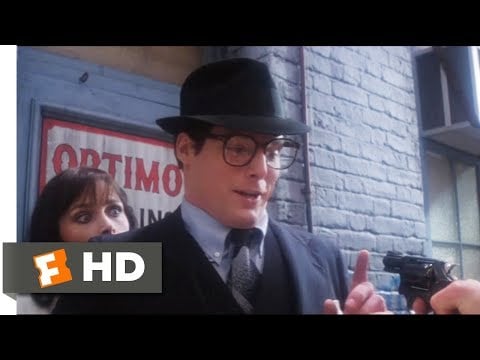In the mind of modern Hollywood, what’s the difference between men and women?
Flaws.
“The Lion King’s” Simba has a problem: his uncle, the conniving Scar, has masterminded a royal coup, killed Simba’s father Mufasa, and banished Simba from his homeland. Simba, who is partially responsible for his father’s death due to ignoring his advice, must now grow into a man elsewhere before returning to defeat his uncle and reclaim his homeland.
Though most of us have seen “The Lion King,” even those who haven’t must be familiar with its traditional hero journey: an immature or relatively imperfect child realizes adulthood by confronting their weaknesses and overcoming an initial challenge.
Margot Robbie’s Barbie has a different problem in the blockbuster 2023 film: her feet are suspiciously flat, and there are hints of incoming…cellulite?

Since Robbie represents “original” (or at times “stereotypical”) Barbie in the plastic realm of Barbieland, the existence of these flaws cannot possibly be a reflection on Robbie’s actions in any way, but a clear and unforgivable rip in the fabric of their pseudo-existence.
Barbie isn’t trying to save herself or learn something because, in the mind of Hollywood, she’s already perfect. Instead, it’s the patriarchal encroachment of the “real world” that needs resolution, and Barbie need not be the impetus or leader of the effort to be the heroine at the center of it all.
You see, in Hollywood, there are two different journeys for male and female characters. Male characters are born imperfect and through adversity, they learn to become a hero. However, Hollywood portrays female characters as alleged heroines born without imperfection and with their world changing around them to recognize this supposed perfection.
Male heroes must confront the flaws within themselves to better assist the world’s problems while most heroines are already perfect, making the whole movie about how they apply their given strengths to addressing hurt feelings. Think “Frozen,” where the conflict is addressed by one sister convincing another that she is loved and should return home.

Or, there is the reimaging of handicaps as revolutionary strengths, such as in “The Shape of Water,” where a deaf woman connects with a merman in part because they both lack human speech. Or, there are the 50 thousand variations of “A Star is Born,” like “La La Land,” where a female talent becomes a celebrity through the urging of the world at large.
Perhaps, the simplest way to see the evolution in Hollywood is to focus on two movies about competitive female fitness.
Clint Eastwood’s 2004 drama “Million Dollar Baby” starred Hilary Swank as a boxer beyond her prime who convinces a sexist curmudgeon to be her boxing coach. Eastwood spends almost the entire first half of the movie telling her to buzz off. By winning over the old coach, and then her early matches, Swank’s grit would force the world’s most hardened male chauvinist to acknowledge the power of her personality.
Swank is up against age, doubt and her own family, at times, but she comes out on top, and on her own terms.
Conversely, 2024’s “Love Lies Bleeding” is a hilariously woke revenge romp against conservative men. Bearing some resemblance to Swank’s boxing coach, every man in “Love Lies Bleeding” is a villain without the capacity to respect women as equals.

While the lesbian love story originates at the gym and involves a steroid-induced bodybuilding dream, at no point is the audience confused about the real conflict. It’s not winning the competition; it’s about defeating the patriarchy, starting with every local man to have entered the plot.
This assumption of patriarchal sexism is the actual conflict in “Barbie,” though it’s rarely addressed directly. The actual facts of the world are forged to make Barbie’s modern Los Angeles appears no different from the male-dominated world of the past.
Much can be made of Mattel’s all-male boardroom in the film, given that it’s closer to 50-50 in reality, and the glorification of corporate America, it’s as though the great benefit of maleness is the encouragement to put on a suit and get to the office by 8 a.m. Monday morning.
“Barbie” is a well-cast and well-designed tale that owes nothing to both sides of any issue, but the fact that Barbie has little agency in her own heroine journey says everything you need to know about the level of achievement demanded of a female protagonist. This is the new standard with which female leads are presented and quite honestly, it is a creative laziness that is more insulting to the viewer than it is supportive of women.
On the flip side, the only male protagonist in Hollywood to seemingly have no flaws is Clark Kent, and he is literally an immortal non-human.

Everyone else is mortal; everyone else is born as imperfect as Simba. He responds to the world’s complexity with a series of actions that are as imperfect as our species.
At the end of this narrative, ideally, the hero has learned something relatable with which to confront their final demons, though this is not always the case.
Male protagonists can be a far greater range of characters since they can also be inherently flawed, especially if they’re white since there is no quality too vile to attach to a white guy in Hollywood with any expectation of social backlash (and even if there were, absolutely no one would mind).
Though this is meant as a form of collective guilt and reminder of privilege, one can’t help but notice that a Superman-bland personality is the furthest planet away from interesting.
The irony is obvious: the more Hollywood wants to boost a social group, the more they are put into a stereotypical box of positive associations that bore and alienate.
It was once true that black men were reduced to acting roles related to slavery and urban crime. Now the opposite is often true, and they must always be doctors and lawyers with a heart of gold.
Simon Phoenix (criminal mastermind, “Demolition Man”) and Thurgood Jenkins (pot-smoking janitor, “Half Baked”) are two of my favorite roles that a studio would never offer a black actor today. Since they are crucial characters in genre-defining films, we all lose out for the creative quarantine.
RELATED: BILL MAHER SKEWERS PREACHY, MAN-HATING ‘BARBIE’
Flawed characters are vastly more dynamic and believable than Superman because that’s what humanity is. Unfortunately, the directors and showrunners of Hollywood have been so consumed by identity politics that the race/gender combination of the protagonist becomes the limiting principle against which all flaws must be measured.
At the end of the day, the message being sent and taught to the next generation is that all boys are bad and all girls are born good, and any male characters that are presented as “good” are portraying unrealistic standards for boys.
This concept disrupts the inherent equality of boys and girls due to their shared humanity. By putting girls up on this “perfect” pedestal, Hollywood has effectively damaged positive perceptions of men, which has fueled our male-hating society. By putting girls up on this “perfect” pedestal, Hollywood has ultimately created an impossible standard for young girls to follow.
Hollywood’s mantra to the world is thus: women can do anything, except be human.
George Denny is the author of “WOKELYND,” a dystopian novel that shows what could happen if we let wokeness rule.
The post Barbie’s Toxic Feminism: Yes, Women Are Flawed, Too appeared first on Hollywood in Toto.